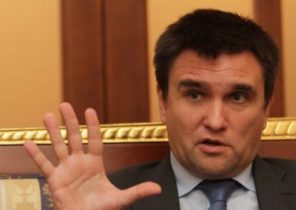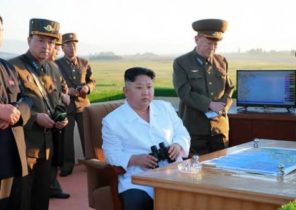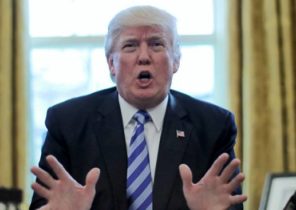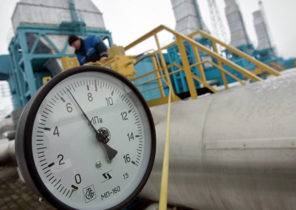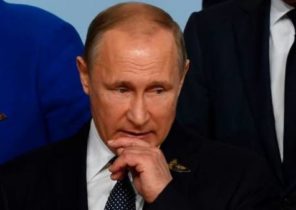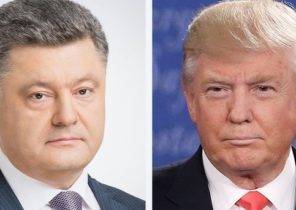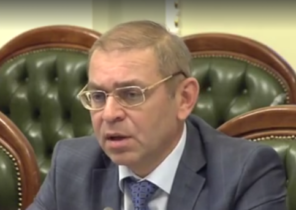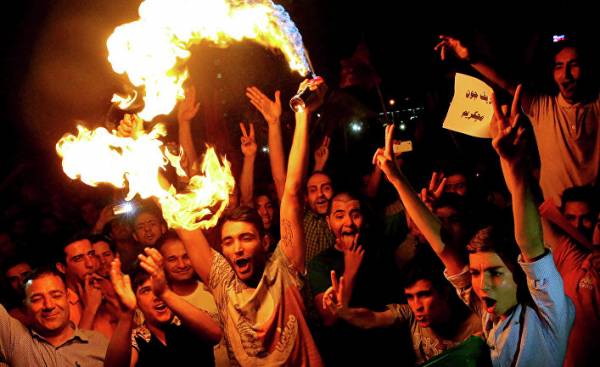
Monday was a difficult one for President trump. First, because of the internal struggle Republicans have failed the proposal of the Senate on the abolition of reform Obama. Then the White house had to confirm compliance with the Iran nuclear deal signed by the Obama administration in 2015. This is the second confirmed trump — every 90 days is required to notify Congress about whether Iran complies with its obligations.
Trump has agreed to take this step with considerable reservations and insisted on additional sanctions against Iran. “Senior administration officials have made it clear that the acknowledgment was grudging, wrote my colleague Karen De young,’ and said that the President trump intends to impose new sanctions against Iran for continuing to “malicious acts” in non-nuclear areas, such as the development of ballistic missiles and support terrorism.”
According to reports, trump does not want to give a second confirmation of Iran’s compliance with obligations, which was confirmed by the international observers and other signatories to the agreement. Key U.S. allies, including the UK, France and Germany, consider the transaction effective deterrent to the alleged nuclear ambitions of Tehran. They do not associate its implementation with concerns over other controversial steps taken by Iran, including the support of various militant groups in the middle East and its unjust detention of foreign nationals.
“The nuclear agreement helps greatly to prevent Iran’s acquisition of nuclear weapons, wrote in this year the German Ambassador in Washington, Peter Wittig. But we are still very realistic in relation to problematic role of Iran in the region.”
Iran remains a geopolitical problem trump No. 1. The President, who seems determined to tear down every pillar of the legacy of Barack Obama has repeatedly called the deal a capitulation to the Islamic Republic. The only memorable event in the short lived tenure of Michael Flynn began his enigmatic statement that he is “officially took note of Iran”. In Saudi Arabia, during his first foreign visit, trump agreed with the vision of Riyadh in the Middle East. First and foremost, he was guided by antipathy to the Tehran.
According to Peter Baker of The New York Times, “trump told his security that he will not continue [to confirm compliance with Iran’s obligations] is infinite”, and complained on almost hour meeting last week on the second confirmation. His main advisers, including national security adviser McMaster, Secretary of state, Rex Tillerson and the Minister of defense of Jim Mattis (none of them have a lot of sympathy for the Iranians), had to convince him to honor that agreement.
While candidate trump loudly declared about the refusal of the nuclear deal as a whole, his administration was forced to abandon such drastic unilateral action. However, it seems that trump himself wants to destroy the deal.
Trump administration “deliberately created an environment of uncertainty, constantly questioning the legitimacy” of the transaction, said TRITA Parsi, President National Iranian American Council, which seeks closer ties between Washington and Tehran, “hinting that the U.S. can withdraw from the agreement, and assuming that it could lead to regime change in Iran”. Parsi said in an email that “rather than engage in dialogue with Tehran to resolve the remaining disputes, as did each of our European allies, the administration trump chose the escalation of tensions and the rejection of the opportunity to come to an understanding.”
At the may NATO summit trump tried to convince European partners to terminate commercial and business transactions with Iran. This step in itself may be a violation of the agreement, which States that the sides will “refrain from any policy” which is detrimental to economic relations of Iran when he complies with the agreement.
But officials of other governments that signed the deal are unwilling to reconsider its conditions. Only last month the foreign Minister of Germany, Sigmar Gabriel welcomed the agreement as “a great sign of hope” and “historic window” for resuming ties. Many European companies enter the Iranian market. This month, French energy giant Total signed an important gas deal with Iran worth about $ 5 billion.
“There is a clear division between the Europeans and the Americans against Iran — said Geranmayeh Ellie, a senior fellow at the European Council on foreign relations, my colleague Erin Cunningham. Europeans embarked on a path of convergence. United States choose a policy of isolationism and containment.”
Not missed and the Minister of foreign Affairs of Iran Javad Zarif, who this week visited new York. The Council on foreign relations, Zarif said that the White house sends “mixed signals”. In an interview with The National Interest Zarif criticized trump’s criticism for alleged “violation of the” essence of the transaction.
“If it comes to a serious breach or, to use the wording of the nuclear deal, a serious failure, Iran has other options, including withdrawal from the agreement,” he said. Although the White house would be happy to exit Iran, this is unlikely to happen. Zarif also used his platform to blame trump for the “promotion of his plans against Iran, including the crisis in the Persian Gulf that broke out after a visit to trump in Saudi Arabia.”
“We should be more careful with signals, because we are convinced that the wrong signals in the past few weeks in our region, especially after the summit in Riyadh, has provoked a pretty serious response in the region — not between the US and Iran, and among U.S. allies, said Zarif, referring to a deadlock in the situation with Qatar. — So I think it is important to take this into account to understand the complexity of the situation”.
“Terrible… that the Minister of foreign Affairs of Iran so easily bypassed American President, writes Fred Kaplan of Slate. But even more sad that the Minister of foreign Affairs of Iran right.”
